Many, myself included, have accepted as a truism in education that “what is evaluated is taught.” Yet the prevalence of this thinking yields tragic consequences around the globe. While the public, private, and civil society sectors clamor for graduates who embody “21st Century Skills” and attitudes, teachers and students, many argue, remain mired in 19th century pedagogy and (if you’ll indulge some exaggeration) ninth century assessment.
To meet the expanded expectations societies increasingly place on schooling, it is critical that education systems and, most essentially, classroom teachers forge new accurate and reliable measures to evaluate “modern” skills as complements to the more traditional assessments of reading and math. Also vital to create are mechanisms to gather such measures and to analyze, disseminate and use them to improve continuously students’ acquisition of relevant skills equally for personal well-being, social life, and work.
Developing and experimenting with such new assessment measures, strategies and ways of using data to improve learning outcomes is precisely the challenge that 15 countries have volunteered to undertake as “Learning Champions.” These countries are doing this as part of the Learning Metrics Task Force (LMTF) project, the story of which has been traced in many other blogs. Briefly, LMTF has conducted a process of convening local, national, and international actors in education from around the world to articulate for introduction into global policy and practice a somewhat innovative and ambitious set of expanded learning domains and measurement areas. (Many other organizations have embarked on this same journey, such as the “Measuring What Matters” project of People for Education in Ontario, Canada and the Assessment and Teaching of 21st Century Skills.)
Yet, as with any ambitious endeavor, especially one with the high visibility and seriousness that LMTF has attracted, it is important to be attentive to criticism. A few critiques currently seem most prominent. One is that the domains and areas are too vast and vague while at the same time they are insufficiently comprehensive. A second concerns the appearance (or imputed by some, the ambition) of a push for homogeneity and hegemonic governance in establishing broadened assessment regimes. In the first instance, some ask how do uniform, global learning domains translate practically as meaningful assessment in the diversity of education contexts and visions around the world. In the second, this criticism is hardened further by the sense of a growing commoditization of learning assessment with a combination of intellectual and pecuniary profits accruing increasingly to a very few institutions. The third critique concerns the fear that the global ambitions for expanded and improved learning assessment overlook or ignore completely the practical aspects of improving teaching and learning. Is it data just for data’s sake or, worse, to foster schemes for punitive accountability? The classroom is, after all, the nexus where improved learning occurs; everything else is essentially supporting infrastructure.
Given that LMTF is still a work in progress, such critiques seem premature as actual analysis or indictment. But they should certainly serve as highly germane warnings. Furthermore, on a personal note, the desire to accommodate such warnings fully and strategically into the “guts” of LMTF was a strong motivation for me to move from the sidelines of the effort as an occasional reviewer to center court as co-chair of the Learning Champions Working Group and as an affiliated researcher.
With the launch last year of the Learning Champions initiative, LMTF enlisted public and civil society education institutions from 15 countries, cities and provinces—Bogotà, Colombia; Botswana; Buenos Aires, Argentina; Ethiopia; Kenya; the Kyrgyz Republic; Nepal; Ontario, Canada; Pakistan; Palestine; Rwanda; Senegal; Sudan; Tunisia; and Zambia—to turn the theory of the LMTF framework into practical reality. In doing this, LMTF is flipping the conventional project approach on its head (à la the Paris Declaration). Rather than guiding the learning champions in a particular “new and improved” learning assessment approach, the task force is accompanying each champion to engage in a critical reflection of its current learning assessment regime and to identify ways to strengthen and expand this that fit the unique aims and characteristics of its education and broader social context. Working individually and collectively with the champions over the current year, LMTF aspires to cultivate and harvest from the experience a set of broad principles and guidelines along with a body of concrete assessment tools and protocols that these, other countries and international partners can use selectively to meet local, national and global learning assessment aims and ultimately yield improved learning of a 21st Century type.
While not as perilous as the Voyager mission to Mars, LMTF still represents an ambitious and somewhat murky exploratory mission. Having begun with a local mapping of who is currently assessing learning of what and how, each learning champion is now selecting which of the seven learning domains and seven measurement areas it wishes to develop and creating a plan to do this. In February 2015, learning champion representatives will convene in Kigali, Rwanda, with members of LMTF to exchange with other learning champions, learn about regional and international resources, and develop action plans before returning home to experiment and validate. The end of 2015 is unlikely to yield earth-shattering discoveries, but there is every reason to expect that the champions will have brought much greater clarity to the learning assessment field in ways that help all education actors fulfill more effectively their respective roles in strengthening learning and education outcomes. Stay tuned. There is much more story to come.
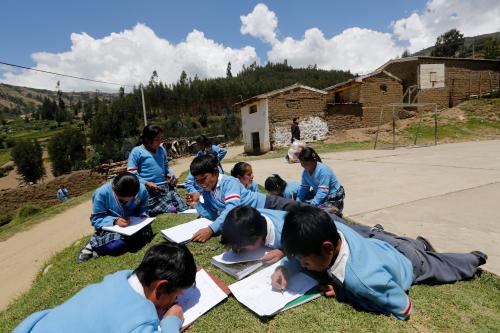
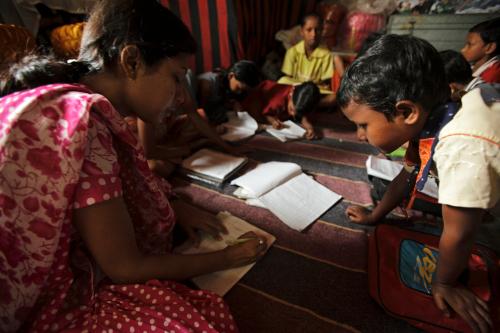
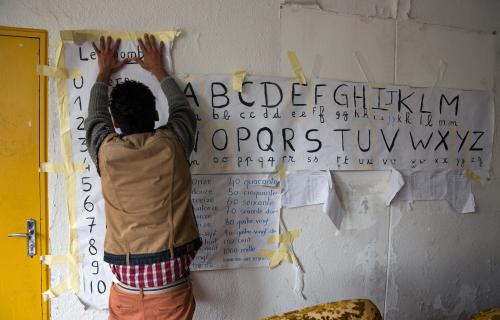
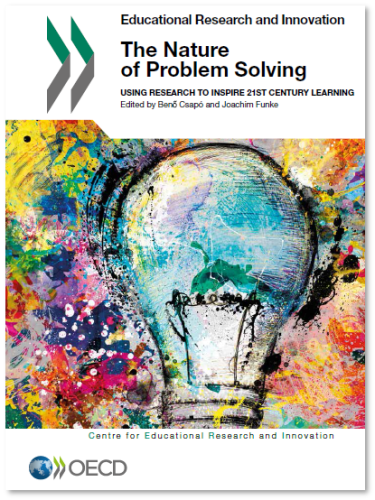
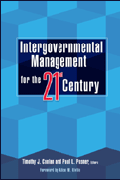
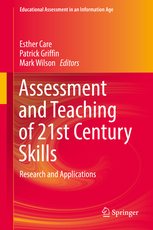




Commentary
Fifteen Champion Countries Look for Effective and Useful Ways to Measure Student Learning
January 27, 2015